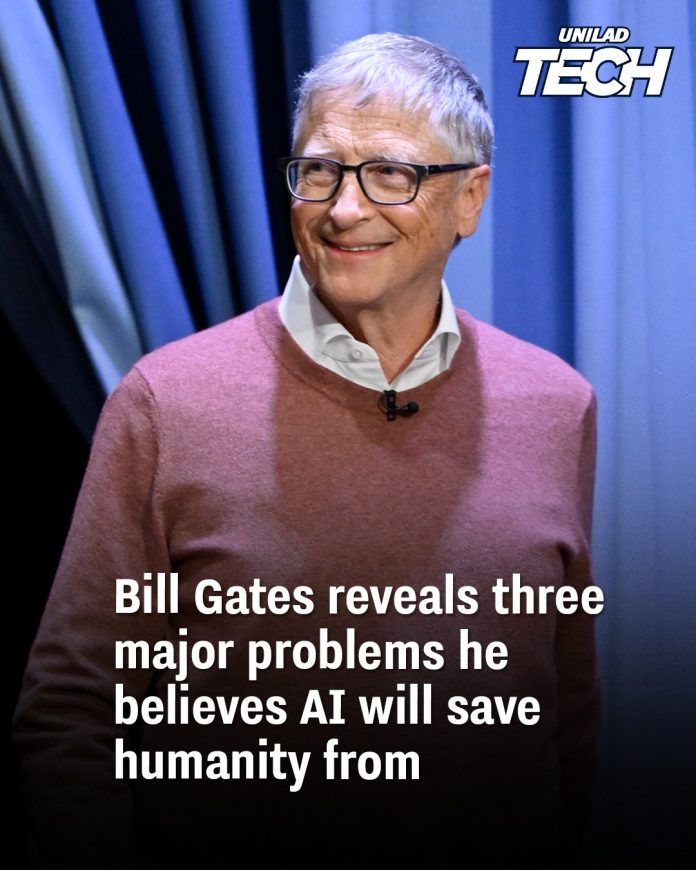Bill Gates, the co-founder of Microsoft and a prominent philanthropist, has consistently emphasized the transformative potential of artificial intelligence (AI) in addressing some of the world’s most pressing challenges. In various discussions and writings, Gates has identified three critical areas where AI could make significant contributions: healthcare, climate change, and education.
Healthcare: Revolutionizing Treatment and Diagnosis
In the realm of healthcare, Gates envisions AI as a catalyst for developing breakthrough treatments for deadly diseases. AI’s ability to analyze vast datasets can expedite the discovery of new drugs and personalize medical treatments. For instance, AI algorithms can sift through extensive patient data to identify patterns that might elude human researchers, leading to more effective therapies tailored to individual patients. This approach not only enhances treatment efficacy but also reduces adverse effects by considering a patient’s unique genetic makeup and medical history.

Moreover, AI-powered diagnostic tools can assist healthcare professionals in detecting diseases at earlier stages. By analyzing medical images, laboratory results, and patient histories, AI systems can identify subtle indicators of conditions such as cancer or cardiovascular diseases, facilitating prompt interventions and improving patient outcomes.
Climate Change: Innovating for a Sustainable Future
Addressing climate change is another area where Gates believes AI can play a pivotal role. AI can optimize energy consumption, enhance the efficiency of renewable energy sources, and contribute to the development of innovative solutions for reducing greenhouse gas emissions. For example, AI algorithms can predict energy demand patterns, enabling smarter grid management and reducing waste. Additionally, AI can aid in designing more efficient solar panels and wind turbines by simulating various environmental conditions and optimizing designs accordingly.
Furthermore, AI can assist in monitoring deforestation, tracking wildlife populations, and analyzing climate data to inform policy decisions. By processing satellite imagery and other environmental data, AI systems can provide real-time insights into ecological changes, supporting conservation efforts and sustainable resource management.
Education: Democratizing Access to Knowledge
In the educational sector, Gates highlights AI’s potential to provide high-quality, personalized education to individuals worldwide. AI-driven platforms can adapt to a student’s learning style, pace, and areas of difficulty, offering customized resources and exercises to enhance understanding. This personalization can help bridge educational gaps, ensuring that learners receive the support they need regardless of their geographical location or socioeconomic status.
AI can also assist educators by automating administrative tasks, allowing them to focus more on teaching and student engagement. Additionally, AI-powered tools can provide teachers with insights into student performance, identifying those who may need additional support and suggesting targeted interventions.

Balancing Optimism with Caution
While Gates is optimistic about AI’s potential to address these global challenges, he also acknowledges the importance of cautious and ethical development. He emphasizes the need for establishing guidelines and regulations to ensure that AI technologies are developed and deployed responsibly. This includes addressing concerns related to privacy, security, and the potential displacement of jobs due to automation.
Gates underscores the importance of collaboration between governments, industries, and research institutions to create policies that maximize AI’s benefits while mitigating its risks. He advocates for investments in education and training programs to prepare the workforce for the evolving job landscape shaped by AI advancements.
Conclusion
Bill Gates’ insights into the potential of artificial intelligence reflect a vision where technology serves as a powerful tool for positive change. By harnessing AI’s capabilities in healthcare, climate change mitigation, and education, society can make significant strides toward solving some of its most daunting problems. However, realizing this potential requires a balanced approach that embraces innovation while ensuring ethical and equitable implementation. As AI continues to evolve, thoughtful stewardship will be essential to guide its development in ways that benefit all of humanity.

















